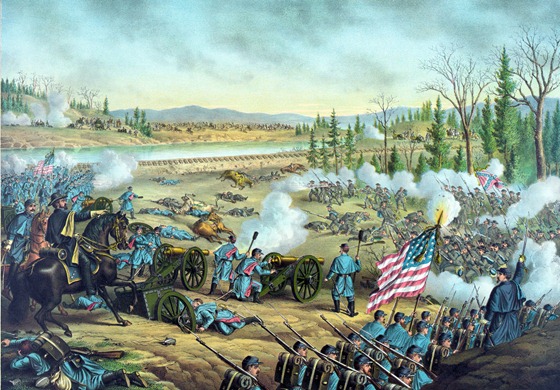by John Beauchamp Jones
JANUARY 3D.—To-day we have a dispatch from Vicksburg stating that the enemy had re-embarked, leaving their intrenching instruments, etc., apparently abandoning the purpose of assaulting the city. This is certainly good news.
Gen. Stuart did not cross the Potomac, as reported in the Northern press, but, doubtless, the report produced a prodigious panic among the Yankees. But when Stuart was within eight miles of Alexandria, he telegraphed the government at Washington that if they did not send forward larger supplies of stores to Burnside’s army, he (Stuart) would not find it worth while to intercept them.
Capt. Semmes, of the Alabama, has taken another prize—the steamer Ariel—but no gold being on board, and having 800 passengers, he released it, under bonds to pay us a quarter million dollars at the end of the war.
A large meeting has been held in New York, passing resolutions in favor of peace. They propose that New Jersey send a delegation hither to induce us to meet the United States in convention at Louisville, to adopt definitive terms of peace, on the basis of the old Union, or, that being impracticable, separation. Too late!

Title: Battle of Stone River, Near Murfreesborough, Tenn.–Dec. 31, 62. Jan. 2-3, 1863–Union (Gen. Rosecrans) … Conf. (Gen. Bragg) …
Copyrighted 1891 by Kurz & Allison – Art Publishers, 76 & 78 Wabash Ave, Chicago, U.S.A.
Library of Congress image.
January 3.— Captain William Gwin, of the United States gunboat Benton, died this evening of the wounds he received in the action near Vicksburg, Miss., on the twenty-seventh of December last.—A volunteer cavalry company, under the command of Captain J. Sewell Reid, arrived at New-York from California, on the way to Massachusetts, in order to join the Second cavalry of that State. They were raised in San Francisco, and represented nearly every loyal State in the Union.—Murfreesboro, Tenn., was evacuated by the rebels. — (Dec. 26.)
— Last night a portion of the command of General Washburne’s cavalry left camp at Helena, Ark., and in a terrific storm of wind and rain, proceeded to a point near La Grange, where, at daylight this morning, they dashed upon a camp of rebel cavalry, and succeeded in scattering them through the woods and destroying their camp, besides capturing ten men and two officers, and killing and wounding ten others.— General Gorman’s Despatch.
—Early this morning Moorefield, Va., was attacked by the strong rebel force under the command of General Jones, and after a contest with the garrison of several hours’ duration, they were beaten off and compelled to retreat, carrying with them, however, sixty-five prisoners with their arms, and six horses.— Wheeling Intelligencer.
Buntyn Station, Tenn., Saturday, Jan. 3. Awoke to find ourselves snugly lying in from two to three inches of water, it having rained very hard, the water coming in under the tent while most of the others lay out doors completely soaked. Hitched and took to the road with the hope that we were to go to Memphis., nine miles distant. As Quinby’s Division was detailed to guard the railroad, the troops were strung all along. We went to within five miles of town, then taking a position on the track with the 48th Indiana at a station called Buntyn Station, Colonel Alexander as acting brigadier general. Received stringent orders not to molest anything, rails included. Put up harness, racks, etc. preparatory for a stay.





